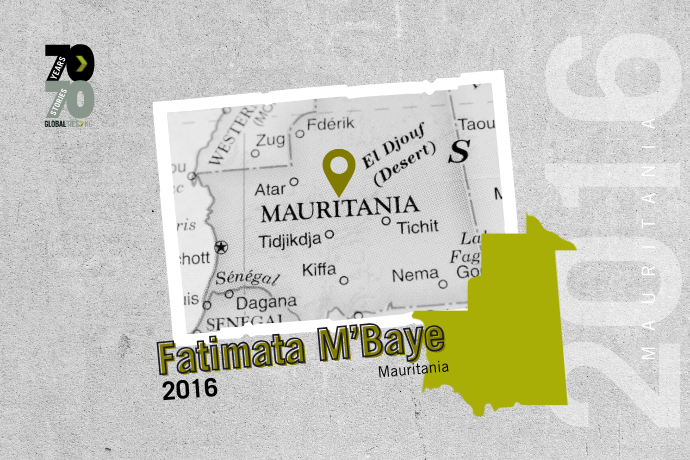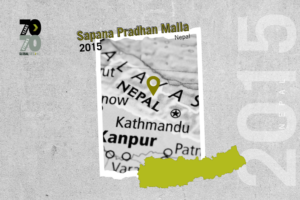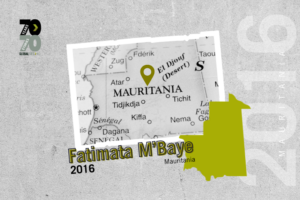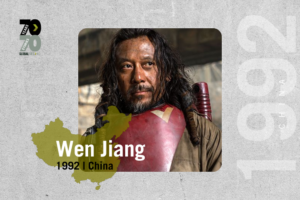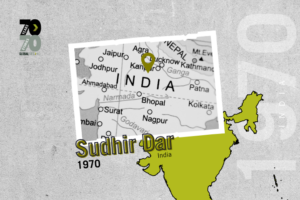What Challenges Did Fatimata M’Baye Face in Advocating for Human Rights in Mauritania?
Advocating for Human Rights in Mauritania
Mauritania became the last country in the world to abolish slavery in 1981. However, de facto slavery continued in the Sahara, and 10-20% of the population remained enslaved as the country failed to bring slave owners to trial. For this to change, it has taken the tireless efforts of human rights activists, including Fatimata M’Baye: the first woman to become a lawyer in Mauritania.
Becoming a Beacon of Gender Equality in Mauritania
In 2007, M’Baye played a key role in drafting precedent-setting legislation that criminalized human trafficking. As a direct result, Mauritania issued its first conviction for child exploitation, its first indictment for slavery practices, and its first sentence for human trafficking.
How Did Kansas City Welcome and Support Fatimata M’Baye as She Fought for Equality?
She became a Global Ties KC program alum in 2016, spending a week in Kansas City on an International Visitors Leadership Program (IVLP), where she shared stories of her work, and met with KC organizations working to fight trafficking in persons.
What challenges did Fatimata M’Baye face in her fight for gender equality?
During her week in KC, M’Baye shared her personal story, of how at age 12 she was forced into marriage with a 45-year-old man, becoming one of thousands of young Mauritanian girls whose childhoods are taken from them through marriage. However, she did not let this injustice stop her. She fought for a divorce at 18, went against cultural tradition to attend school, and began studying law and economics at the University of Nouakchott in 1981, the same year slavery was legally abolished. When she graduated from law school in 1988, she became Mauritania’s first female lawyer and has been fighting for gender equality ever since.
How Did Fatimata M’Baye Empower Others Through Education and Legal Advocacy?
Within three years of graduation, she co-founded the Mauritanian Association for Human Rights and has since served as the President and Chair of the Committee for Women’s Rights. She drafted the 2007 anti-slavery law which led to the first imprisonment for slave ownership in Mauritania. This was a massive step in the indictment and prosecution of people involved in the illegal slave trade. Although celebrated by many, her work has come with a vast personal risk. She has been imprisoned three times in Mauritania and has had countless threats made against her life. Despite this risk, she regularly tackles the toughest legal cases in Mauritania. In a country constantly riddled with ethnic tensions, Ms. M’Baye fights for peace, tolerance and equality.
“I do not see myself as a black woman. I could be born white, yellow, Mongolian, or Kurdish, and I would have recognized myself in each of these. For me, the value of the human being is above everything.”
– Fatimata M’Baye
Honored for her noteworthy accomplishments, M’Baye received the 2016 International Women of Courage Award from the Secretary of State and was subsequently invited on an IVLP program to Kansas City. While here, she met with community partners to discuss the harms of forced marriage, to learn about community initiatives, and to promote her message of equality around the world. This included visits to the Rose Brooks Center, Legal Aid of Western Missouri, and the U.S. Attorney’s Office. Although only in Kansas City for 6 days, she was inspired by our community and brought her knowledge back to Mauritania when she returned. The next year she was appointed by the United Nations to serve as an expert to investigate violence against women in the Democratic Republic of Congo.
Currently, she serves on the United Nations Board of Trustees for the Voluntary Trust on Contemporary Forms of Slavery and remains a guiding force in the fight for gender equality worldwide.
How Can You Promote Human Rights and Gender Equality?
As we reflect on Fatimata M’Baye’s remarkable journey and advocacy, you can also take action toward fostering a more equitable world. Make a difference today by hosting international visitors to promote cultural exchange and understanding.


